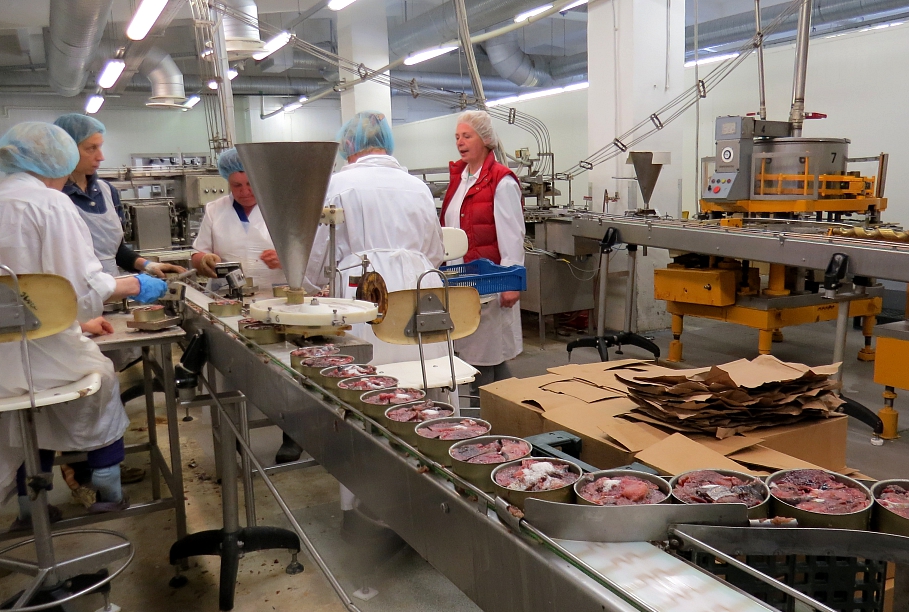As Latvian Radio reporter Inga Ozola learned at the Kolumbija fish processing plant, workers are preparing the plant for the shut-down and planning their visits to the State Employment Agency to register for their unemployment benefits and look for alternatives in the job market.
The company has experienced similar slumps before, most notably in the 1990s, when its ownership changed, staff member Juliana Belonogina explained.
“There’s still hope that we’ll start up again in September, then at least we can endure the summer. The main thing is to keep working, otherwise it’ll be a sad situation,” she said.
Kolumbija corporate representative Igors Krupņiks called the situation at the plant, which is owned by Russian business interests, “chaos with no clarity about the future.”
“We won’t fire everybody en masse,” he said. “We told people that. Now we’re trying to get around 200 people their chance to collect unemployment. But we’re planning to hire separate work brigades to occasionally fulfil an order,” he promised. The plant employed altogether around 300 people and will try to maintain itself with a skeleton staff of 60.
He went on to explain that 40-45% of the company’s exports go to the Russian market, but problems due to its currency devaluation have caused losses. Transit trade through Russia to Kazakhstan, where Kolumbija also has a significant export line, is likewise in jeopardy.
As for the potential of the market in China, Krupņiks remained skeptical.
“One must remember this is a specific market that isn’t used to our product. It’s not a very fair market. I used to work with the Chinese market from Russia. Every third shipment went unpaid for. There’s no strict legal recourse, for instance in the courts, there’s an element of the fantastical in all of that. What will it really look like? Maybe an export percentage or two. There’s a lot of homework still to be done, just to translate labeling into Chinese, for example.”
Meanwhile at the State Employment Agency’s Liepjāja branch office staff are expecting the wave of cannery workers from Kolumbija. Deputy branch head Māra Zeme said Liepjāja already faced a 11.9% level of joblessness due to the troubles at steelmaker Liepjajas metalurgs and the trend is bound to keep growing now that the cannery is suspending its operations.
On Tuesday monitoring department head Ernests Zavadskis of Latvia’s state Food and Veterinary Service (PVD) told independent channel LNT news that Russia’s food safety watchdog, the phytosanitary and veterinary health inspection Rosselkhoznadzor found there to be excessive levels of benzopyrene in Latvian and Estonian fish products.
Latvia has two months to respond to the Russian agency’s complaint so that the objections can be addressed and the ban lifted. It was imposed on June 4 after a routine inspectors’ visit to five Latvian canneries in May.



























